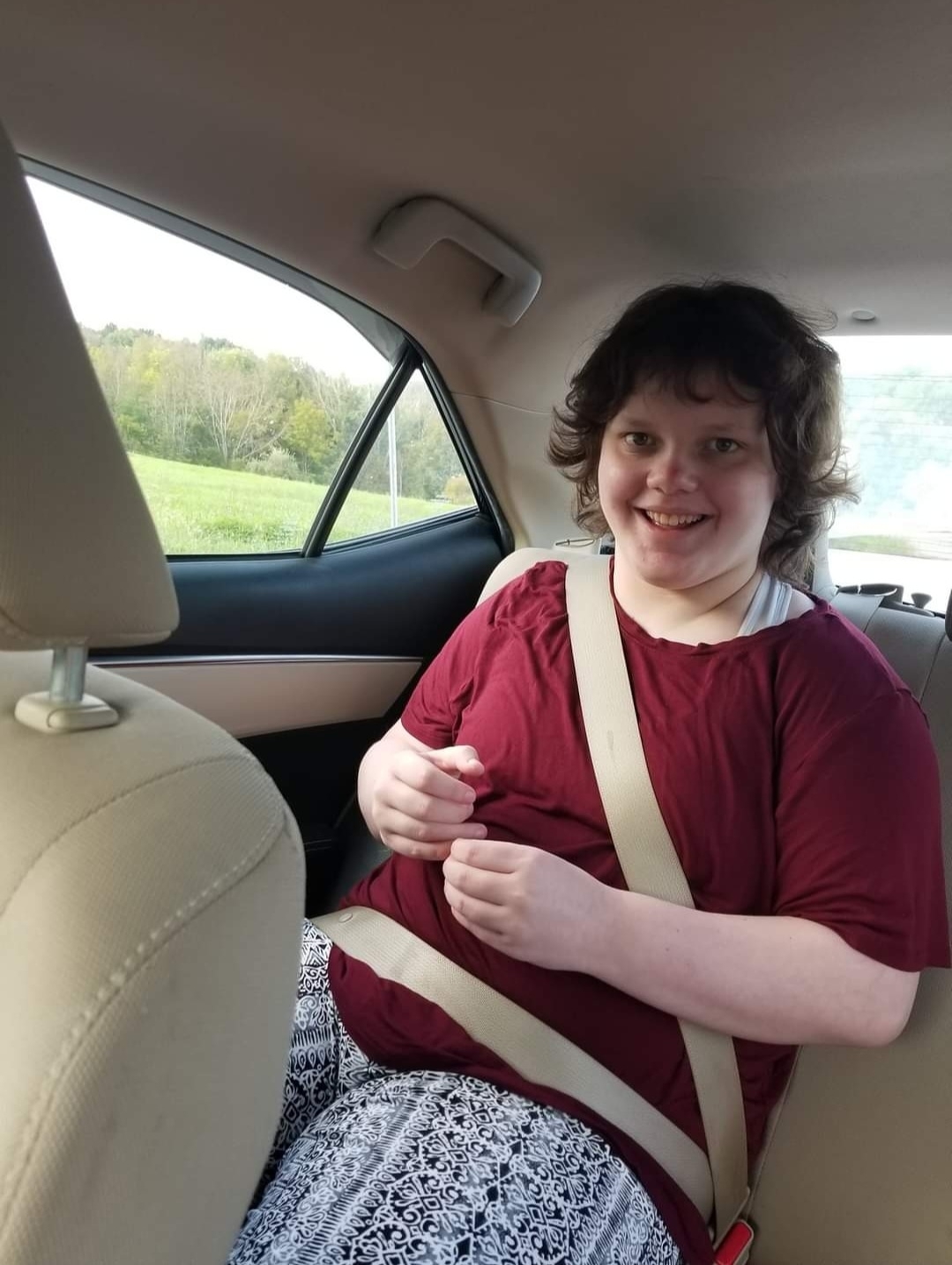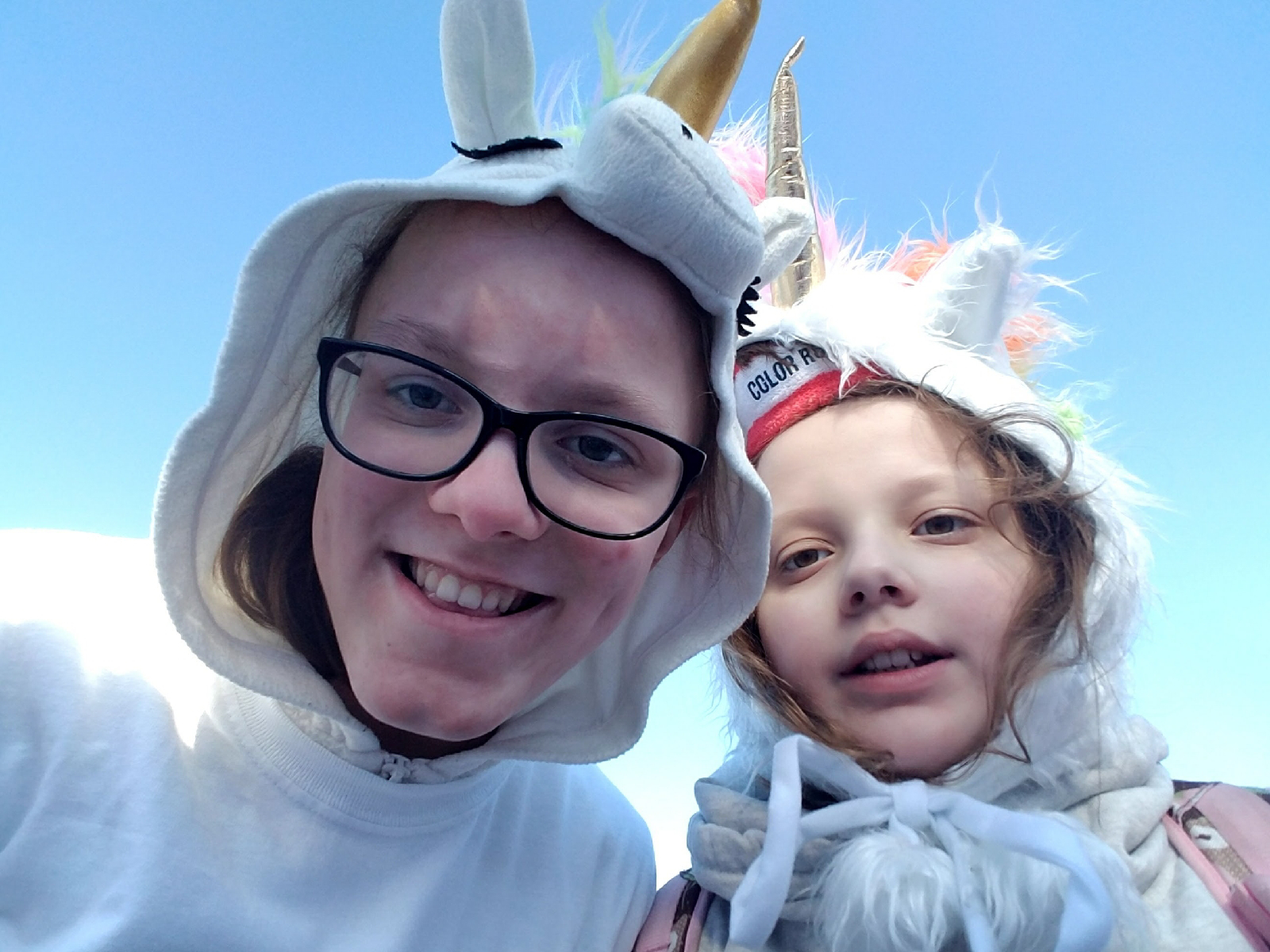Thoughts During Autism Acceptance Month
Autism is a very complex and often mysterious disorder. There are many myths and assumptions about it, and you can find them all over the internet, in the news, and in daily life. Here are some of the main autism myths debunked...with my own peanut gallery commentary at the end of each! (Source: Autism Speaks... and me!)
Myth #1: People with autism don't want friends.
If someone in your class has autism, she probably struggles with social skills, which may make it difficult to interact with peers. She might seem shy or unfriendly, but that's just because she is unable communicate her desire for relationships the same way you do. (I believe that Lulu does want to have friends. If she sits down next to you and snuggles in, it means that she's found comfort in being with you. This has been happening more often, and with more people.)
Myth #2: People with autism can't feel or express any emotion—happy or sad.
Autism doesn't make an individual unable to feel the emotions you feel, it just makes the person communicate emotions (and perceive your expressions) in different ways. (Lulu laughs and cries at some of the same things that "neurotypical" kids do....sometimes it's completely inappropriate too...it's just her finding her way).
Myth #3: People with autism can't understand the emotions of others.
Autism often affects an individual's ability to understand unspoken interpersonal communication, so someone with autism might not detect sadness based solely on one's body language or sarcasm in one's tone of voice. But, when emotions are communicated more directly, people with autism are much more likely to feel empathy and compassion for others. (I know that when I am feeling sad, Lulu will come and sit by me for awhile....as if she knows I'm sad).
Myth #4: People with autism are intellectually disabled.
Often times, autism brings with it just as many exceptional abilities as limitations. Many people with autism have normal to high IQs and some may excel at math, music or another pursuit. (There's no question that Lulu is bright...she just has difficulty in showing what she knows when it comes to testing).
Myth #5: People with autism are just like Dustin Hoffman's character in Rain Man.
Autism is a spectrum disorder, meaning its characteristics vary significantly from person to person. Knowing one person with autism means just that—knowing one person with autism. His or her capabilities and limitations are no indication of the capabilities and limitations of another person with autism. (It's amazing how many times people have asked me if Lulu is just like Rain Man! No, sorry, she's not an excellent driver!! 🤣).
Myth #6:
People who display qualities that may be typical of a person with autism are just odd and will grow out of it.
Autism stems from biological conditions that affect brain development and, for many individuals, is a life long condition. With Lulu, her autism symptoms were seemingly mild at first, and then they seemed to grow stronger as she got older.
Myth #7: People with autism will have autism forever.
Recent research has shown that children with autism can make enough improvement after intensive early intervention to "test out" of the autism diagnosis. This is more evidence for the importance of addressing autism when the first signs appear. (Keep in mind that just because someone can "test out" of the autism diagnosis, it does not mean that you should assume that will happen. But you should never, ever give up hope!)
Myth #8: Autism is just a brain disorder.
Research has shown that many people with autism also have gastro-intestinal disorders, food sensitivities, and many allergies. I don't know if I believe that there is a link between GI disorders or if it's just coincidence. I do know that coincidentally Lulu has Celiac Disease, and that has made our lives far more complicated than just her having autism!
Myth #9. Autism is caused by bad parenting.
In the 1950s, a theory called the "refrigerator mother hypothesis" arose suggesting that autism was caused by mothers who lacked emotional warmth. This has long since been disproven. This theory made me cringe from the first time I researched autism symptoms. What a horrible burden to place on the mothers of autistic children! I know I constantly feel guilty for the wouldas, couldas, shouldas when it comes to both of my kids...I can't imagine if that was heaped onto my plate as well!
And finally, my favorite...
Myth #10. Vaccines cause autism.
From the Kennedy Krueger Institute's website (links to studies and resources are found at this website as well): https://www.kennedykrieger.org/stories/myths-facts-about-autism-spectrum-disorder.
"While there is no known single cause of ASD, there is no evidence to support a link between vaccines and ASD (American Academy of Pediatrics, 2017). Thimerosal, which used to be a common vaccine ingredient, was once thought to have caused ASD. Since thimerosal has been removed from vaccines, however, the prevalence of ASD has increased rather than decreased (Center for Disease Control and Prevention, 2015). The American Academy of Pediatrics has compiled a list of the research studies that demonstrate there is no link between vaccines and ASD. Although there is no evidence that vaccines cause ASD, there are certain environmental and genetic factors that are associated with a higher risk of ASD due to their effect on brain development. There are currently 61 genetic variations that are associated with ASD risk, and repeated or deleted sections of DNA and chromosomal abnormalities have also been implicated (Autism Speaks, 2017). Environmental risk factors associated with ASD include advanced paternal age (over 34), poor maternal physical and mental health, maternal prenatal medication use, maternal exposure to chemicals, preterm birth, complications during birth, low birth weight, jaundice, and post birth infections (Karimi, Kamali, Mousavi, & Karahmadi, 2016). Mumps, measles, and rubella are among the infections associated with an increased risk of ASD, so the preventative MMR vaccine helps mitigate the risk of developing ASD from these infections."
























